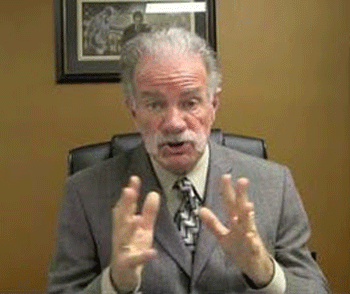When things unsaid, say a lot
African Americans, Education, Featured, Racial Equity — By Guest Author on June 24, 2010 at 06:17By Monise Seward
“Negroes have no control over their education and have little voice in their other affairs pertaining thereto…The education of the Negroes, then, the most important thing in the uplift, of the Negroes, is almost entirely in the hands of those who have enslaved them and now segregate them.” Carter G. Woodson, The Mis-Education of the Negro.
In 1933, Woodson wrote those words describing the condition he termed the ‘mis-education’ of the Negro to describe the manner in which many Blacks had been educated, by Whites, using textbooks that literally eliminated the existence and contribution of people of African descent. You may wonder, “is his theory still relevant today?”
Absolutely, but it is as subtle today as it was then, especially if you are not paying close attention.
I would like to share a few examples of how our country’s public education system continues to mis-educate generations of Black and Brown children. Those who openly call attention to this injustice are few and often work outside the system, they are labeled as radicals and treated as outcasts. I anxiously await my own induction into this unique group, because I am immune to indoctrination and refuse to sell my soul, or those of innocent children, to ease the guilt of those perpetuating the mis-education.
So, what re-ignited my disdain for this unwritten rule of mis-educating? It all started innocently; a few weeks ago, I received a free copy of Frederick Hess’ Education Unabound: The promise and practice of Greenfield Schooling. I was excited because, the book was free, but also because I was interested in reading what others say about the current education reform craze. I hesitate to use the word movement, since it connotes organized activities toward a specific objective. What is happening in public education under the guise of education reform is far from a movement and certainly not in the best interest of anyone’s civil rights, at least not kids who look like mine.
As I read the book’s preface, I thought it would be an excellent read; I shared many of the sentiments expressed by Hess, including a teacher’s battle to secure textbooks for students. During my first year teaching, I had a similar struggle in trying to obtain a teacher’s edition since I was co-teaching a U.S. History class. It sounds trivial, but that incident, and others, often left me scratching my head and questioning the status quo. Eager to learn more about Hess’ insights on how to deal with such trivial bureaucracies, I continued to read.
However, what I read within the next few pages angered me and called to mind things that Ira Socol deems colonial projects, such as the Knowledge is Power Program (KIPP), Teach for America (TFA) and even the leadership style of Michelle Rhee, Chancellor of the D.C. Schools. I do not dispute the actual successes, since those can be proven, of programs or initiatives created by the afore-mentioned groups and individuals, but I am deeply offended and disturbed by the promotion of these programs as the educational silver bullet. Furthermore, financial backing by the likes of Bill Gates, Eli Broad, the Walton Foundation and others sends a clear message that the ends, student achievement, justify the means, alienating minority parents and teachers.
How does our country get to the place where anyone, excluding minorities, receives overwhelming financial support, accolades and media (over) exposure for their efforts to educate those characterized as uneducable, at-risk or urban?
We have seen this type of paternalistic attitude in the realm of religion for centuries, with Christian missionaries converting the dark-skinned ‘savages’ on the continents of Africa and Asia. Now, this ideology has made its way into the public education sector. Many people share this concern, but far too many are willing to denounce the perpetuation of the White Savior mentality at a time when it is most crucial.
By making these statements, I am not insinuating that non-minorities do not possess the passion or ability to provide minority children with a quality education. However, there are thousands of equally qualified minority teachers and parents with ideas to do the same, without the media fanfare. Minority groups typically lack the financial and political resources to turn ideas into action. I make this statement based on observing minority groups, watching the above-referenced programs spread into our communities, without the use of our human capital, and my own personal experiences.
In my involvement with charter schools in Georgia, I have met some very talented, passionate and dedicated educators and parents. These people worked tirelessly researching and developing innovative charter schools within their communities. Many identified deficiencies in local schools, such as leadership, instructional resources and the caliber of educational programs available to children.
As a parent with school-age children, I can attest that those reasons motivated me to develop plans for a visual and performing arts charter school for my community. After almost a year of work, we submitted our petition to the local school board; it was denied. The board provided a list of deficiencies found in our petition; some were justified and others were fabricated. Perhaps the most interesting was the board’s claim that Grant Wiggins’ Understanding by Design (UbD) instructional framework was not research based.
We planned to implement UbD to use what students already knew in order to drive classroom curriculum. By starting where students are academically, you save valuable instructional time by covering the information they need to know. Anyone who knows anything about education has studied or read something by Wiggins in their career. Furthermore, they can attest that all of his works are research-based. The board’s view on UbD is contradictory based on available research alone, couple that with the superintendent’s recent attendance at a workshop on UbD, and you can draw your own conclusions.
Other minority-led groups were told that their prospective governing board members were not qualified enough to oversee the daily operations of a charter school. One is a former Department of Education employee, another, a former school superintendent. If former superintendents are not qualified to manage a single charter school, what does that say about current superintendents? What do those statements say about how Whites view Blacks with regard to educating their own children?
We send our children to schools, in districts largely controlled by Whites; yet, those in positions of power subliminally tell us that we are not qualified to educate our own children. Many school districts are and have been controlled by Whites for hundreds of years; yet, our kids still lag behind Whites and Asians. Still, they tell us that we are not qualified to handle the daily affairs of schools in our communities. These are real examples of how local boards of education impede efforts that could truly close the achievement gap for minority, low-income and special needs students. Woodson made this statement 77 years ago, no one listened.
There is something terribly wrong with this picture of education reform. No Child Left Behind did not fix it. Race to the Top certainly will not fix it. This issue goes much deeper than money, and it will take more than 3-5 years to rectify. A new education agenda, controlled by a man with no classroom experience, will not fix it.
We are not looking at the real causes of educational woes, because the truth makes too many people, both Black and White, uncomfortable. Those who have historically been in control will have to admit their role in perpetuating the White Savior Myth. They will have to admit that they want to see their comrades make millions of dollars in the booming charter school business, again, off the backs of disenfranchised groups. Something tells me that people are not ready to do that.
Until there is an admission of guilt, things will not change. Three years from now, we will continue the same conversations about the high drop-out rates of African American and Latino students. The achievement gap will be as pronounced tomorrow as it is today. We are going nowhere, fast, on the road to education reform, and spending a lot of money in the process.
This journey reminds me of the disappointment Dorothy and her companions felt in ‘The Wiz’ when they realized that Oz did not exist. I consider myself a realist, and I do not believe that education reform will happen until we start telling the truth, even if I make a few of my brothers and sisters, themselves mis-educated, uncomfortable.
###
Monise Seward is a mother, doctoral student, and vocal Arts-Education and school reform advocate. She writes about education-related issues on her blog and for Examiner. You can also follow Monise on Twitter.
Tags: African-Americans, Christian missionaries, Education, racial, Racial Equity, Talking about Race, white saviorAuthor: Guest Author (94 Articles)



 Share This
Share This Tweet This
Tweet This Digg This
Digg This Save to delicious
Save to delicious Stumble it
Stumble it





 The Grinch who stole Eid
The Grinch who stole Eid Analysis: The Fight Over the Redskins Trademark
Analysis: The Fight Over the Redskins Trademark The DREAM Act goes down... Again
The DREAM Act goes down... Again Struggles of the second generation
Struggles of the second generation








1 Comment